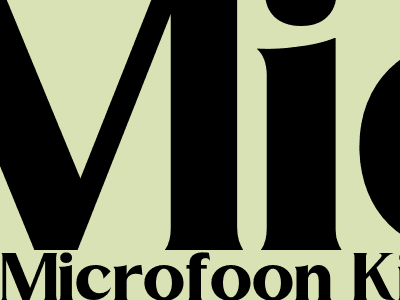
Microfoon Kind
The Ultimate Guide to Mastering SEO for Bloggers: A Comprehensive Framework for Success
Introduction
In today's digital landscape, search engine optimization (SEO) is not just an option but an essential component for bloggers who aim to reach a wider audience and establish a successful online presence. By optimizing your blog content and enhancing your website's visibility on search engine result pages (SERPs), you can attract more organic traffic, drive engagement, and ultimately grow your blog's reach and impact.
Understanding SEO Fundamentals
To embark on your SEO journey, it's crucial to understand the foundational principles of search engines. Google, the dominant search engine, employs sophisticated algorithms to crawl websites, index their content, and determine their relevance for specific search queries. By adhering to these algorithms and optimizing your blog's content and technical aspects, you can significantly improve your chances of ranking higher in SERPs.
Keyword Research: The Bedrock of SEO
Keyword research forms the cornerstone of effective SEO. It involves identifying the specific words and phrases that your target audience is searching for when seeking information or products related to your blog's niche. By incorporating these keywords into your content, you increase the likelihood that your blog will appear among the search results for those specific queries.
On-Page SEO Optimization: Optimizing Your Content and Website
On-page SEO encompasses the optimization of your blog's content and technical elements to improve its visibility and relevance in search results. Here are some key on-page SEO techniques:
Content Optimization: Creating High-Quality, Keyword-Rich Content
Search engines prioritize websites that provide valuable and informative content that meets the needs of users. When creating content for your blog, focus on delivering high-quality, original, and keyword-rich content that resonates with your target audience.
Image Optimization: Enhancing Visual Appeal and Accessibility
Images can significantly enhance the user experience and visual appeal of your blog. However, it's essential to optimize images for SEO by including relevant keywords in their file names and alt text. This helps search engines understand the context and relevance of your images, improving your ranking for image-based searches.
Header Tags: Structuring Your Content for Clarity
Header tags (H1, H2, H3, etc.) help structure your content and make it easier for users to scan and understand. By incorporating relevant keywords into your header tags, you can provide search engines with a clear understanding of your content's hierarchy and key points.
Internal Linking: Connecting Your Content and Improving Navigation
Internal linking involves creating links between pages on your website. This helps search engines understand the relationship between different pieces of content and allows users to navigate your website seamlessly. By strategically placing internal links, you can distribute link equity throughout your website, improving your overall SEO performance.
Meta Tags: Providing Essential Information to Search Engines
Meta tags are snippets of code that provide search engines with vital information about your page's content. The title tag and meta description are particularly important, as they appear in search results and influence users' decisions to click through to your website. Optimize these meta tags by including relevant keywords and a concise summary of your page's content.
Website Speed Optimization: Ensuring a Seamless User Experience
Website speed is a crucial factor in both user experience and SEO rankings. Ensure that your blog loads quickly on all devices by optimizing images, minimizing the use of plugins, and implementing caching mechanisms. A fast-loading website improves the user experience and reduces bounce rates, which are positive signals for search engines.
Off-Page SEO: Building Authority and Credibility
Off-page SEO involves building external relationships and acquiring backlinks from reputable websites. These backlinks serve as "votes of confidence" for your website, indicating to search engines that your content is valuable and trustworthy.
Guest Posting: Contributing Valuable Content to Other Blogs
Guest posting is a powerful off-page SEO strategy that involves writing and publishing high-quality content on other websites within your niche. By providing valuable insights and establishing your expertise, you can earn backlinks to your blog and increase your visibility among a wider audience.
Social Media Engagement: Building Relationships and Promoting Content
Social media platforms provide an excellent opportunity to connect with your audience, promote your blog content, and build relationships with influencers and potential partners. By actively engaging on social media, sharing valuable content, and participating in relevant conversations, you can attract followers and generate buzz around your blog.
Backlink Building: Acquiring High-Quality Backlinks from Credible Sources
Backlinks from reputable websites are the cornerstone of off-page SEO. Focus on acquiring high-quality backlinks from websites that are relevant to your niche and have a strong domain authority. Avoid participating in link schemes or purchasing backlinks, as these can negatively impact your SEO efforts.
Influencer Outreach: Collaborating with Industry Experts
Collaborating with industry experts and influencers can amplify your blog's reach and credibility. By reaching out to influencers in your niche, you can explore opportunities for guest posting, interviews, joint webinars, and other mutually beneficial collaborations.

Komentar